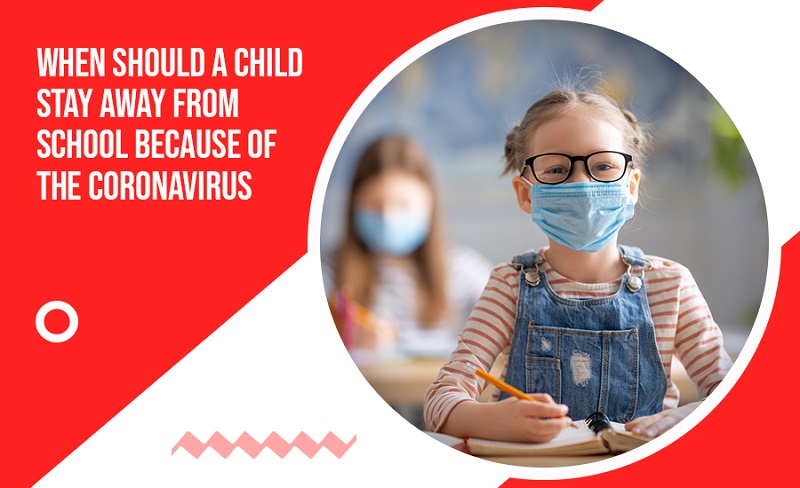When Should A Child Stay Away From School Because Of The Coronavirus?

If you are a carer or parent, you need to know the right time for your child to stay away from school and get a private COVID test to help curtail the spread of the coronavirus. As you read on, you would find some common scenarios when a child should not go to school and when your child should resume school.
It is also important to know the symptoms to look out for such as:
- A new loss or change in taste or smell
- High temperature
- A new and continuous cough
What to do if your child experiences COVID-19 symptoms
If your child shows symptoms of COVID-19, the following should happen
- The child should stay away from school
- The child should get a COVID-19 test
- Your household members should self-isolate as you wait for the result
- Inform the school about your child’s COVID-19 test result
If the test result is negative, your child can resume school. However, the fever should have subsided for about 48 hours, and your child should feel well before going back to school.
What do if your child has a positive COVID-19 test result
- The child to stay away from school
- Your child should self-isolate for a minimum of ten days, from the onset of the symptoms or the day the child took the test if there is no symptom.
- Let the school know the outcome of the COVID-19 test
- Your household should self-isolate for about 14 days, from the onset of the symptoms or the day the test was taken if symptoms are absent
Your child can resume school after ten days if the child feels better and the fever has been absent for a minimum of 48 hours. If only a cough or loss of smell persists, the child can resume school because these symptoms are usually present for several weeks after the infection has cleared.
What you should do if a member of your household has COVID-19 symptoms
- Your child should not go to school
- The person showing symptoms should get tested for the coronavirus
- Your household should self-isolate as you wait for the result
- Inform your child’s school immediately
Your child can resume school once the household member tests negative and the child shows no symptoms
What you should do if is someone in your house has a positive COVID-19 test result
- Your child should not go to school
- Your household should self-isolate for about 14 days from the day symptoms started, or the test was taken if no symptom is present. Ensure that everyone completes the 14-day isolation even if the test results of other household members were negative.
- Your child can resume school after 14 days of isolation
What do if the NHS test or contact tracing identified your child as a confirmed case or close contact
- Your child should stay away from school
- Your child should self-isolate for 14 days even if the test result was negative
- Your other household members do not need self-isolation, except they have close contact with the infected person
- You child can resume school after the 14-day self-isolation
What you should do if your child travelled and needs to self-isolate during the quarantine period
- Take an authorised leave from the school for the term
- Consider the requirements for quarantine when planning for a trip
- Give the school information due to the attendance policy
What to do if your child returns from a destination that requires quarantine
- Your child should not attend school
- Your household should isolate for 14 days, even if your child has negative test results
- Your child can resume school after the 14-day quarantine
What you should do if a medical professional advised your child to resume shielding
- Your child should stay away from school
- Your child should shield until the medical expert lifts or pauses the shielding
- Contact your child’s school
- Your child can only resume school when the medical official has lifted the restriction
If your child shows symptoms of COVID-19, ensure you schedule an appointment for the child to get a private COVID test London at Blood London. You can contact us on 020 7183 0244 to book for the COVID-19 test.